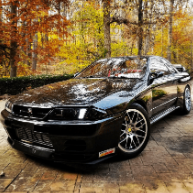Regular vs premium vs 98 octane
Announcements
-
Similar Content
-
Latest Posts
-
By nouveau_poor · Posted
Update: O2 sensor in my downpipe turned out to be faulty when I plugged in to the Haltech software. Was getting a "open circuit" warning. Tons of carbon buildup on it, probably from when I was running rich for a while before getting it corrected. Replaced with new unit and test drove again. The shuffle still happens, albeit far less now. I am not able to replicate it as reliably and it no longer happens at the same RPM levels as before. The only time I was able to hear it was in 5th going uphill and another time in 5th where there was no noticeable incline but applying more throttle first sped it up and then cleared it. Then once in 4th when I slightly lifted the throttle going over a bump but cleared right after. My understanding is that with the O2 sensor out, the ECU relies entirely on the MAP tune and isn't able to make its small adjustments based on the sensors reading. All in all, a big improvement, though not the silver bullet. Will try validating the actuators are set up correctly, and potentially setting up shop time to tune the boost controller on closed loop rather than the open loop it is set to now. Think if it's set up on closed loop to take the O2 reading, that should deal with these last bits. Will try to update again as I go. -
By Dose Pipe Sutututu · Posted
More so GReddy oil relocation kits, sandwich plates, etc. all use 10AN fittings. And same, I've only used 10AN and my car sees track work (circuit, doing laps, not 10 sec squirt business). -
street use or race track, what hose size and why? what factors change with the hose size options ? see most comon is an10. when you see most oem external coolers are closer to an12? does high volume oil pump like nitto need an12 or 10 be just fine
-
By SeanR32GtSt · Posted
The rod I was moving left and right you can see looking from the passenger side floor up into the center console. IMG_8095.mov
-




Recommended Posts
Create an account or sign in to comment
You need to be a member in order to leave a comment
Create an account
Sign up for a new account in our community. It's easy!
Register a new accountSign in
Already have an account? Sign in here.
Sign In Now